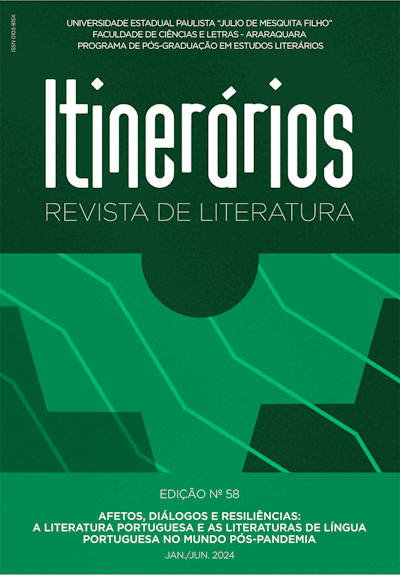Allegories of the house in ruins in the romances of Hatoum and Lobo Antunes
DOI:
https://doi.org/10.58943/irl.v1i58.18714Keywords:
Memory, Hermeneutics, Ruin, Home, Luso-Brazilian fictionAbstract
The Angel of History thesis, which encourages us to think about the dispersion of ruins, presents a central configuration for understanding historical time. The allegorical meaning of the Angelus Novus, referred to by Benjamin, is continually enacted in the contemporary Portuguese-language novel, of fidelity when looking at the past, understood, as Ricoeur states as a device for (un)happy memory, which is activated as the characters are unable to forget past events, repeated in their memories. From this perspective, although Milton Hatoum and António Lobo Antunes present very different aesthetic characteristics in the narrative composition of their plots, we understand that numerous elements can bring authors closer, especially in aspects relating to the hermeneutic elaboration of memory that is projected onto historical ruins, continually recalled by the characters that inhabit the fictional space. Thus, we set out to bring together, in the novels Tale of a Certain Orient (1989) and The Archipelago of Insomnia (2008), the relationship between the space of the house and the memorial rubble that survives from the ruins of the past.
Downloads
Published
Issue
Section
License
Os manuscritos aceitos e publicados são de propriedade da revista Itinerários. É vedada a submissão integral ou parcial do manuscrito a qualquer outro periódico. A responsabilidade do conteúdo dos artigos é exclusiva dos autores. É vedada a tradução para outro idioma sem a autorização escrita do Editor ouvida a Comissão Editorial.

